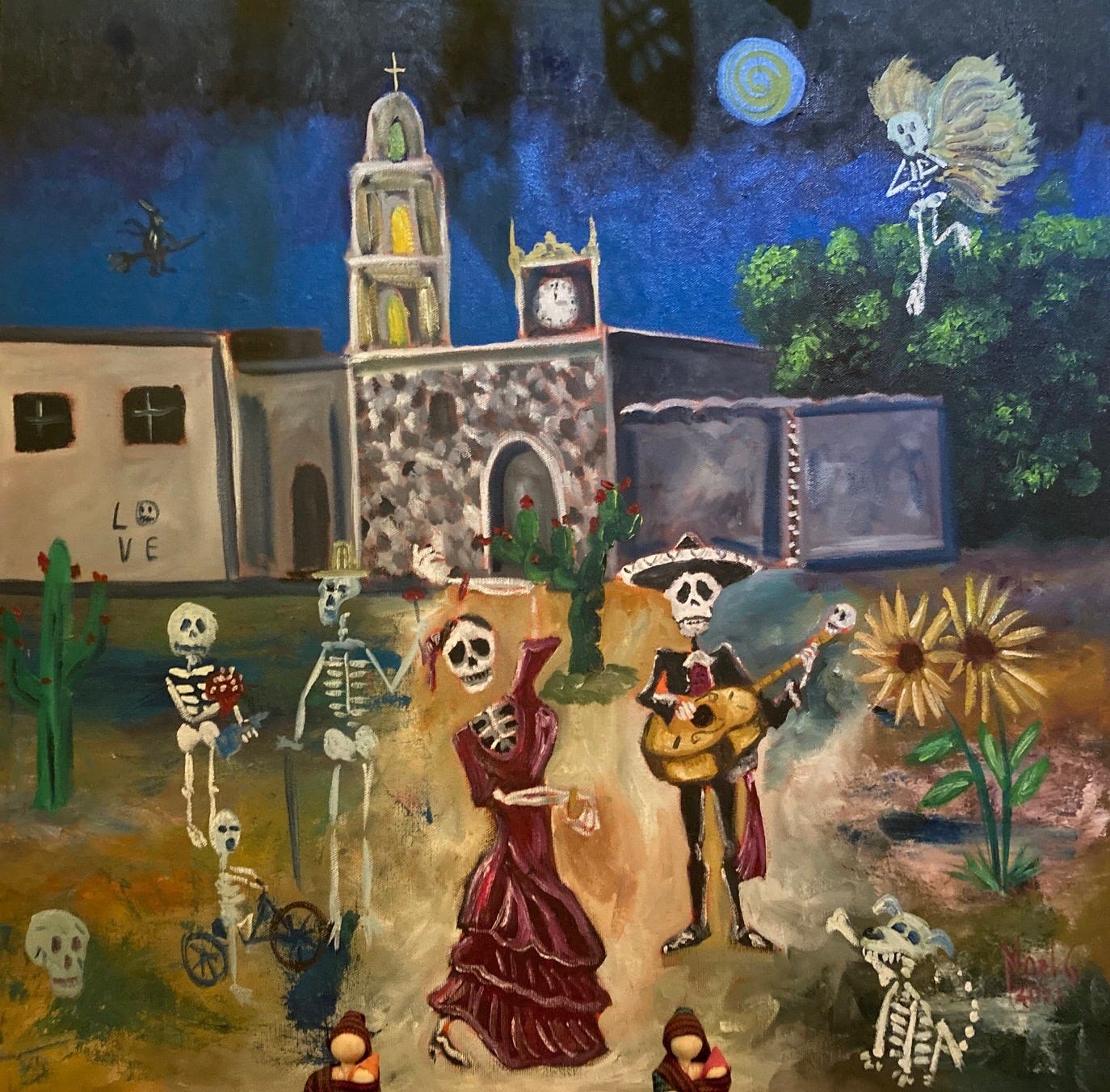16 DECEMBER—It was the first day of November and we were driving on a toll road on the northern outskirts of Monterey, two hours south of Laredo and two days north of Guadalajara. My nerves were shattered from hours of dodging bumper to bumper semi-trailer truck traffic on narrow roads with no shoulders, while traveling at terrifying speeds.
Patrick was behind the wheel of our Subaru Forester, doing 75 mph in the inside lane as he passed a small red vehicle we’d been playing leapfrog with. Suddenly, the silhouette of a man appeared before us rising up from the steep bank of the median to our left. As the distance quickly closed, he staggered onto the road and into our lane.
The look on his face was shocking, unfathomably blank, as if he had no idea where he was or what he was doing. In those few heartbeats it seemed that we would kill another human being—feel the impact as our car collided with human flesh, watch as his body was thrown into the air—and that we were utterly helpless to prevent the most horrible thing that could ever happen.
I screamed as Patrick, with no time to look in the mirrors, swerved to the right and into the outside lane. Momentarily out of control, the car nearly flipped. There was a terrible sound from the right rear wheel as we clipped the car behind us. And then it was over. Our car and the world had righted itself. No one had died. No one was even injured. A human life had been spared.
We pulled over a mile down the road, got out of the car, shook hands with the other driver, assessed the damage to his fender and ours. By nothing less than a miracle, it was minimal. We exchanged insurance information and tried, with little luck, to communicate across the language barrier. In the end, by mutual assent, speaking broken Spanish and English, we agreed to let it go and go on our ways, thankful that no one had been killed.
We had no chance to find out anything about the person we’d almost hit. The young man who had nearly shattered our lives was simple gone, receding into the past as we continued our drive north. It took us days to recover from the shock.
Sometime later that same afternoon, Patrick said, “The first instinct is to save a human life. Even at the risk of your own.”
* * *
I think about this as the genocide in Gaza continues.
The instinct to safeguard and protect human life is basic. You could say it’s a fundamental quality and expression of what it means to be human. But clearly it’s an instinct that can be lost—through propaganda, indoctrination, ignorance or denial of history, and the terror and trauma of violence.
We’re seeing that on full display daily as Israel continues to slaughter Palestinian children and civilians—intentionally targeting journalists, doctors, academics, poets, aid workers—in numbers never before seen in any other conflict in recent history. By all reports the vast majority of Israelis fully support what is now widely considered to be a genocide, even celebrating it on social media.
There are so many ways to care for and protect a human life. But there is no impulse to do so if you cannot first recognize the humanity of another person.
Holding onto our humanity—to our ability to see and respect the humanity of others, even the humanity of those who are now committing (and celebrating) genocide—may be one of the most significant things any of us can do at this moment in human history and for the sake of a better future. Everything else that is possible and good follows from that.





Having struck a pedestrian who ran in front of our car (decades ago now), I relive a bit of the adrenaline rush that strikes us when such things happen in a split second as I read your account.
Holding onto our humanity seems in short supply. I reflect on this often in my own musings. One from a few years back:
Journey
Ours is a journey from darkness to light.
It’s a life’s work, which does not come easily
or automatically.
Whatever gifts and graces come to us as
we make that journey—that which is both
means and end—
bring order to the chaos of our lives.
We must press on with the work
of striving toward a better moral understanding,
attainable through
the wisdom of creation.
And if the journey’s troubles wake us in the night,
pondering the darkness and the light,
may we find ourselves holding each pilgrim’s walk in prayer,
for together, we must
make the journey
toward Love’s eternal light.
TP Graf from "Looking Out onto Our World"
Cara,
Excellent piece. I’m so glad to have stumbled across your page and read several more of your recent articles as soon as I finished this one.